New cars put brakes on CO2 reduction
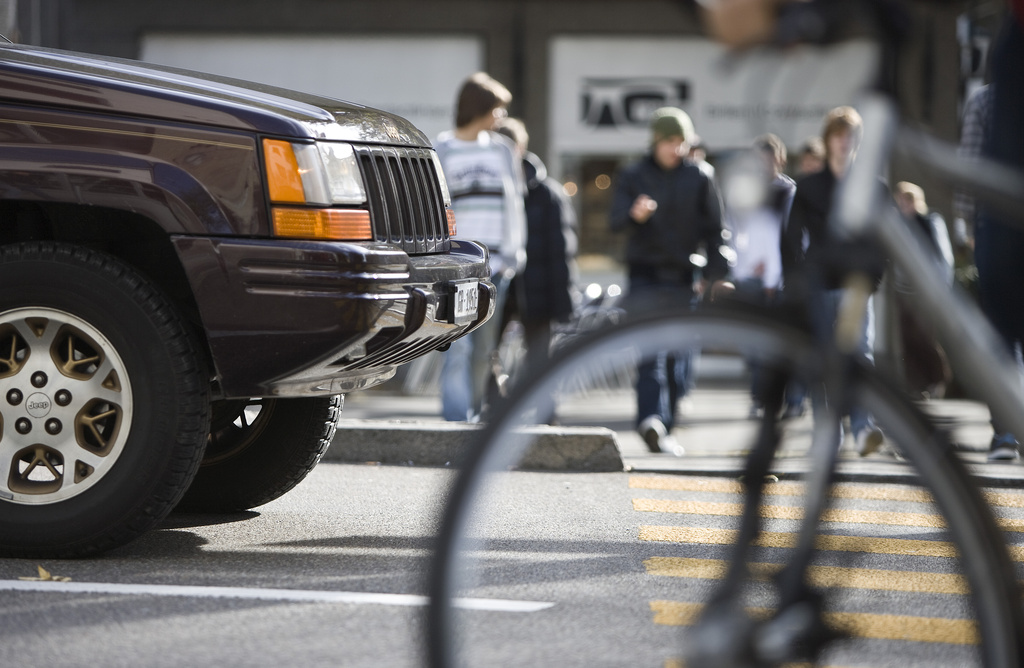
In the race to improve fuel efficiency and cut carbon dioxide emissions from motor vehicles, Switzerland is falling behind its neighbours.
The SonntagsZeitung newspaper revealed this week that in 2009 the average C02 emissions of new cars bought in Switzerland were higher than in its neighbours. Not only that, but Switzerland is not managing to reduce these levels as quickly as the EU is doing.
In France, the average new car produced only 133 grams per kilometre, 5.2 per cent down on the previous year. The Germans bought cars that produced 154 grams, but that was a drop of 6.5 per cent. In the EU as a whole the drop was 5.2 per cent.
Switzerland, by contrast, brought the rate down by only 4.6 per cent, and its new cars were putting 167 grams of CO2 into the atmosphere.
Thomas Bucheli, scientific officer in the climate division of the Federal Environment Office, told swissinfo.ch that a number of reasons have been suggested as to why the Swiss buy cars with relatively high emission levels.
The mountainous countryside means that there is a greater need for four wheel drive vehicles than in many other European countries. But this can only explain a small part of the difference, he pointed out.
“We think it primarily has to do with the consumer behaviour of the Swiss, that they have a greater preference for cars with high horsepower than people in other countries – that also has to do with income levels,” he said.
But he put the SonntagsZeitung figures into perspective by pointing out that in previous years the Swiss had managed to cut their levels faster than their neighbours.
Petrol versus diesel
Government fuel policies also play a role. In Switzerland the tax on petrol is lower than in other countries, which means that there is less incentive to buy more economical vehicles.
On the other hand, unlike its neighbours, Switzerland does not offer discounts on diesel, although this is more efficient, so the proportion of diesel-fuelled vehicles is much lower.
That is something that Andreas Burgener, director of Auto Schweiz, the Swiss automobile importers association, regrets.
“The reason is that the Swiss are determined to shift freight from road to rail. A lower price for diesel would favour road freight.”
Bucheli said that a drop in diesel price is currently not under consideration – but in any case, he added, diesel is losing its efficiency advantage with the development of new turbocharged petrol engines.
Cutting emissions
The Swiss government is keen to persuade the Swiss to buy cars that produce fewer CO2 emissions.
It is proposing to introduce emissions targets for new cars, as in the EU, Bucheli explained. These should start being introduced in 2012.
Individual importers would be given a target to meet for the average emissions of the cars they sell. Not every importer would have the same target, but it would average out at 130 grams CO2 per kilometre. Importers who failed to comply would face sanctions.
“The EU has already decided on this level. It’s going to come. In Switzerland the actual level is still being debated,” he said. “But the government has concluded that it is possible to achieve the same level as in the EU, and that it should not entail a lot of expense.”
The House of Representatives has already discussed the issue, and wants a level of 150 gram; it has yet to come before the Senate.
Auto Schweiz also thinks CO2 emissions should be reduced.
“In the context of the limited amount of fossil fuels available, we think it should be a goal to design and sell more energy-efficient motors,” Burgener told swissinfo.ch.
“But not in the context of some sort of climate hysteria. It has not yet been 100 per cent proved how far man-made CO2 has an impact on the climate.”
Incentives and sanctions
For Burgener the way to go is by offering incentives, in the form of price reductions, to buyers of fuel-efficient cars.
“Everyone talks of banning things, but an incentive system would be much more intelligent. Customers are much readier to accept this.”
Such a system is already under discussion at federal level, Bucheli assured swissinfo.ch; meanwhile some cantons have introduced their own incentives, such as by charging lower rates of yearly vehicle tax.
The government sees its proposal on emissions limits as being its most important instrument for reducing CO2 from vehicles.
“It’s very important for us that we should close the gap with the European Union,” Bucheli said.
According to the Federal Environment Office, under similar driving conditions, Euro 4 (EU exhaust emissions) diesel engines consume 20-30% less fuel (litres per 100 km) than petrol engines meeting the Euro 4 standards. Emissions of CO2 are 10-15% lower.
But diesel engines without particle traps pollute the atmosphere: emitting up to 1,000 times more carcinogenic fine particles than a conventional petrol engine and around 100 times more than a direct-injection petrol engine.
Cars with diesel engines of this type produce on average 5-8 times more nitrogen oxides – a cause of summer smog – than petrol-driven cars.
New EU standards (known as Euro 5 and 6) will apply from September 2009, setting tighter emission limits of particles and of nitrogen oxides for new cars and vans sold in the EU market. This makes the introduction of particle filters for diesel cars obligatory.

In compliance with the JTI standards
More: SWI swissinfo.ch certified by the Journalism Trust Initiative
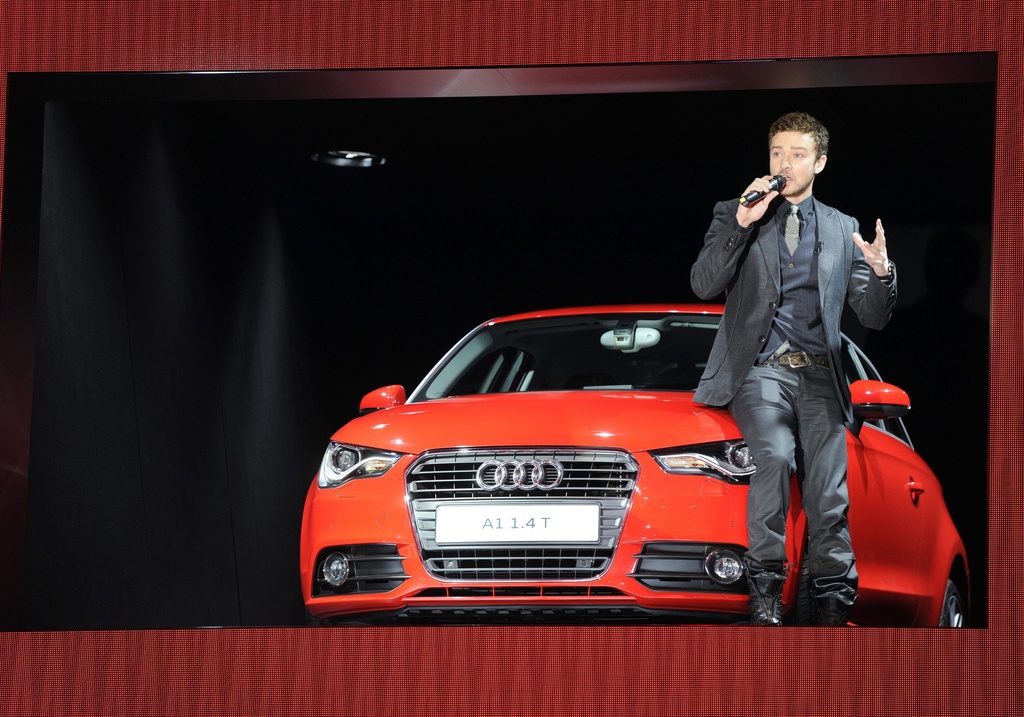
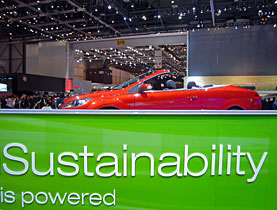
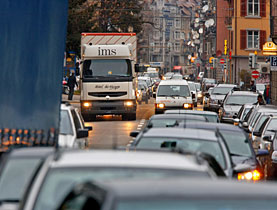
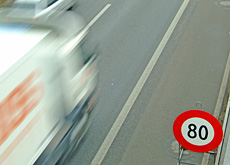
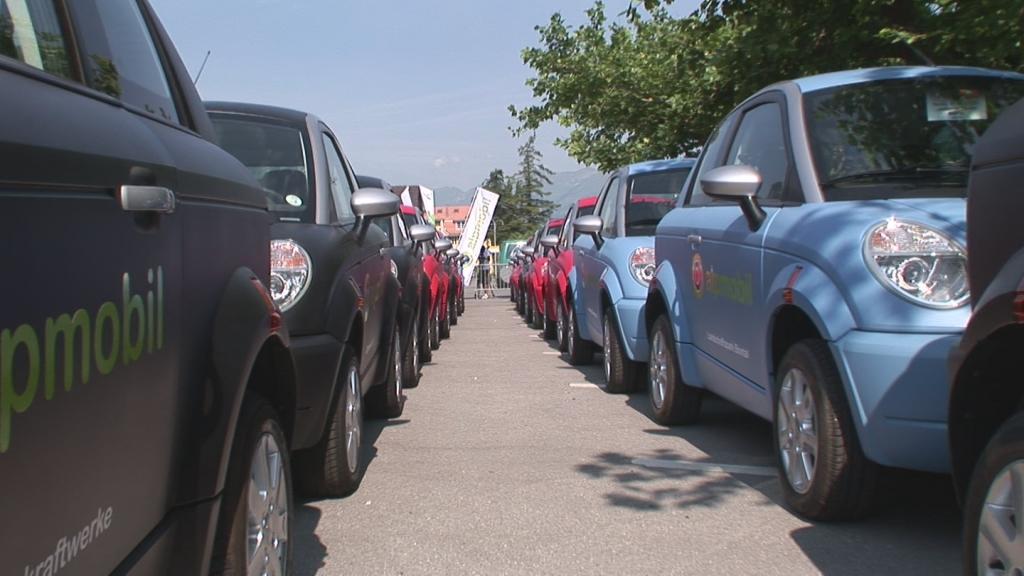
You can find an overview of ongoing debates with our journalists here. Please join us!
If you want to start a conversation about a topic raised in this article or want to report factual errors, email us at english@swissinfo.ch.